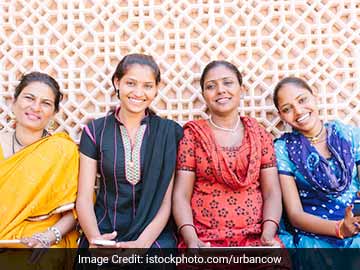The far reaching differences between men and women have inspired curiosity, poetry, romance and polemics for centuries but they have only recently prompted scrutiny by medical and social scientists. Women have more frequent illness and disability but the problems are typically not serious life threatening ones.

International Women's Day 2017
- Sigmund Freud
The far reaching differences between men and women have inspired curiosity, poetry, romance and polemics for centuries but they have only recently prompted scrutiny by medical and social scientists. Women have more frequent illness and disability but the problems are typically not serious life threatening ones. In contrast men suffer from more life threatening diseases and these cause more permanent disability and earlier death for them. One sex is sicker in short run - the other in long run.
Men have more risks from their jobs, household tasks, life style behaviors, self imposed stress and reaction to stress and social ties over a life time. Women have more risks in two respects - from more contact with young children and from more emotional distress.
Women feel more psychological distress (anxiety, depression, guilt, conflicting demands) on a day-to-day basis and over their life-times than men do and this may decrease their physiological resistance to acute and chronic conditions. Over their lifetime, women maintain stronger emotional ties with more people. Intimate ties with friends, colleagues, neighbors offer social support and deter loneliness. This may act as a buffer for disease - reducing its occurrence, severity and especially its duration.
Perception - Women are more sensitive to bodily discomforts than men are. This may be because of childhood socialisaiton.
Evaluation - Women are more apt to label their symptoms as physical illness and after such labeling, assess their illnesses and injuries as more severe and serious than men. On the other hand it is not 'masculine' to be ill or they ignore the implication of symptoms for their usual activities.
Women take action by adopting a sick-role. This occurs through both their willingness and ability. Women may have numerous factors some of which may be - it is more socially acceptable - they have more dependent and help more dependent and help seeking behaviour and they have more trust in authority.
The concept of learned helplessness is more typical of women than men. Also bed rest, activity restriction and turning to others/medical attention is believed by them to be helpful.
Four vulnerability factors, which increase the chances of a woman developing stress in the form of depression in the presence of a life-event or difficulty are:
- Lack of good marital relationship
- Lack of full-time or part-time employment
- The presence of three or more children under fourteen years at home; and
- Parental loss before seventeen years of age.
Women's status and reality in the authoritarian patriarchal society of India may further exacerbate life-stresses, anxiety or depression. Women staying with psychiatrically ill husbands in nuclear families show more psychiatric disturbance. The neurotics and their spouses appeared to have more conflicts with regards to finance, household tasks and companionship, and to lesser extent with regard to child rearing. This probably highlights the clash between traditional and modern values as women take up careers and increasingly emerge as individuals in their own rights. Points of conflict may arise in various circumstances if the norms and personal preferences of the husband are opposing of the wife or vice-versa.
It is found that number of desirable and undesirable events experienced by single woman is almost the same but a trend towards an increase in undesirable events is seen with marriage. Also they found the personal events contributed towards greater stress in married women. Marriage contributed to development of greater symptoms in women. Work appeared to have a protective effect but to a small extent.
Women are dependent for satisfaction of affiliative needs on their husbands who lack training in being expressive. Dependence is related to helplessness. It could also mean that dependent women relate to their husband in a child-parent way or remain excessively involve in their families of origin to the detriment of their marriages. The picture gets complicated because dependency may become worse by a depressive illness.
Even among professional women who perceived their careers as being just as salient or integral to their lives as their spouse, their family interests supersede their career concerns. The housewife's role identity is particularly dependent on family responses because she has no external evaluators to turn to for contrary opinion when her husband and / or children do not know her work as worthwhile. Unfortunately, a negative evaluation of her role by her family is quite frequently the case, since the status of a housewife in our society is relatively low. In a money based economy, a job that engenders no income has lessened status value.
(Dr. Jitendra Nagpal is a Senior Psychiatrist & Incharge of the Institute of Mental Health and Life Skills Education, Moolchand Medcity, New Delhi)
Disclaimer: This content including advice provides generic information only. It is in no way a substitute for qualified medical opinion. Always consult a specialist or your own doctor for more information. NDTV does not claim responsibility for this information.
DoctorNDTV is the one stop site for all your health needs providing the most credible health information, health news and tips with expert advice on healthy living, diet plans, informative videos etc. You can get the most relevant and accurate info you need about health problems like diabetes, cancer, pregnancy, HIV and AIDS, weight loss and many other lifestyle diseases. We have a panel of over 350 experts who help us develop content by giving their valuable inputs and bringing to us the latest in the world of healthcare.












